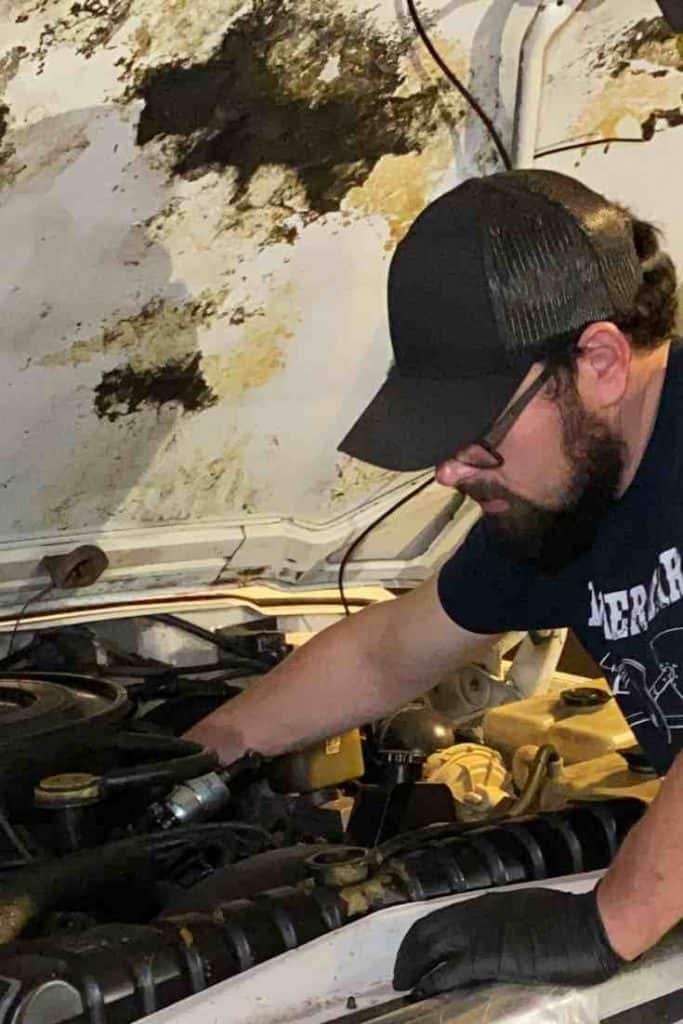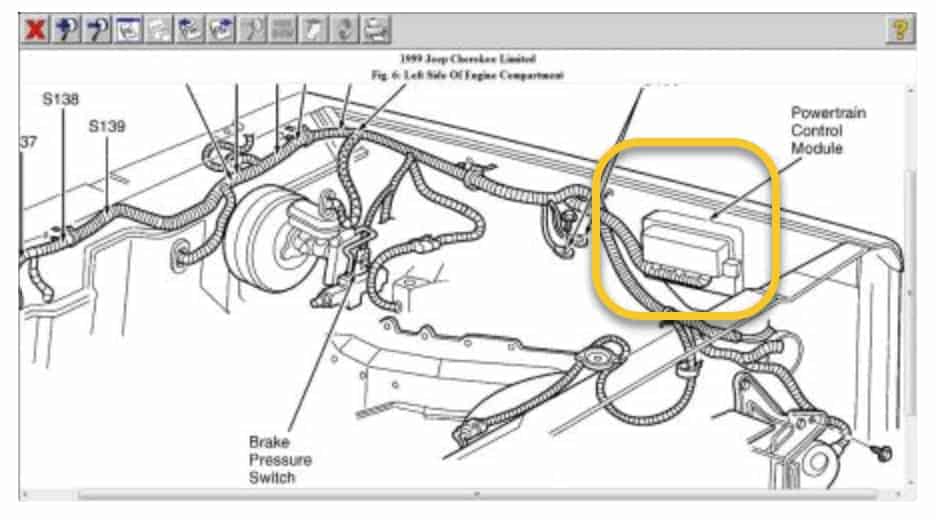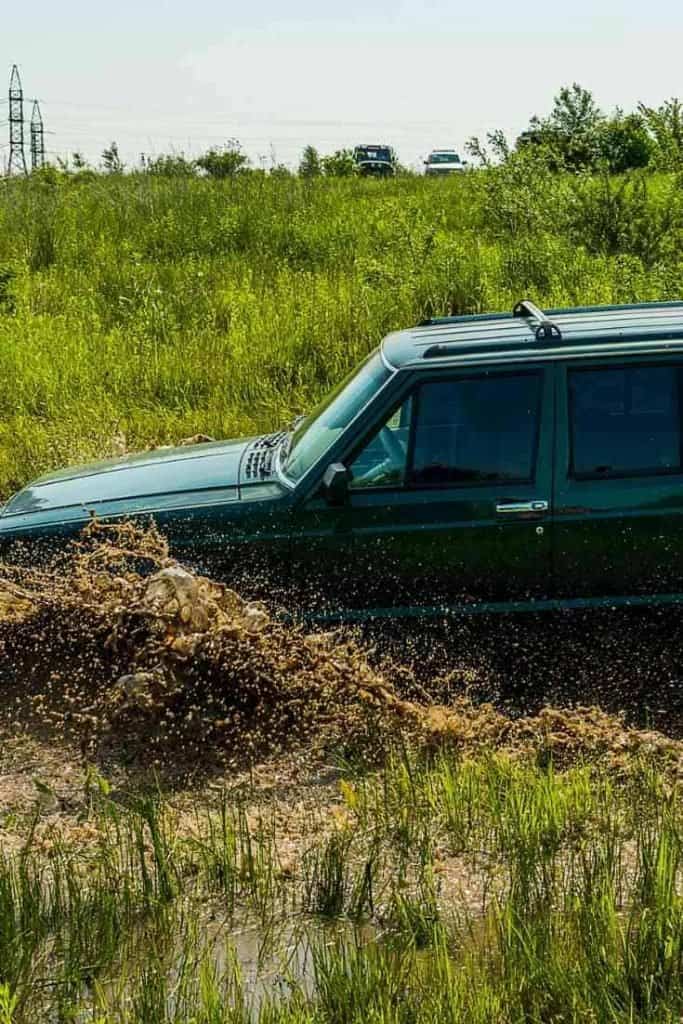Jeep Cherokee Stalling While Driving | How to Fix It
Although it is one of the most recognizable models on the SUV landscape, the Jeep Cherokee has been plagued through the years by driver complaints about chronic stalling. There are countless instances of Jeep Cherokees stalling while traveling at low speeds or high speeds, driving straight or losing power in the midst of a turn. While certainly frustrating, these stalls can also have serious consequences.

Why Your Jeep Cherokee Keeps Stalling and How to Fix It
Here is why your Jeep Cherokee keeps stalling: Many stalling problems can be attributed to the PCM or crankshaft sensor and there are steps you can take to fix these issues yourself or at the very least point your mechanic in the right direction
Most stalling problems pertain to model years starting from the mid-1990s all the way to recent model years, and have occurred with virtually every trim level.
While researching Jeep stalling issues, people saved these article for additional reading: What To Do If Your Jeep Stalls In Reverse, Jeep Won’t Accelerate? Here’s What to Do, and The Jeep’s Idling High Problem | Explained and Fixed.
Jeep Cherokee XJ’s and Cherokee KJ’s with less than 25,000 miles have experienced stalling problems, but most cases seem to involve vehicles with 75,000 miles or more on them, and it is with particular reference to these older vehicles that the PCM is most relevant.
In this article, we examine the most common causes for Jeep Cherokee stalls and how to fix them. A deep dive into actual solutions offered by the most trusted sources, fellow Jeep Cherokee owners like you.

What is a PCM and What Does it Have to do with Stalling
The PCM (Powertrain Control Module) is a computerized system that monitors and controls various systems on a Jeep Cherokee, including vital operations such as engine timing, the transmission (gear shifting), anti-lock braking, fuel to air ratio mixing and quite a few others.
In other words, the PCM functions as the vehicle’s brain, responding to dozens of sensors and instructing systems how to work.
As is now apparent to many Jeep Cherokee owners and their mechanics, a faulty PCM can manifest itself through a variety of conditions, the most notable of which is sudden stalling while the vehicle is being operated.
Other symptoms include engine knocking or stuttering, erratic or jerky gear shifting, difficulty starting the engine and a noticeable drop in fuel efficiency (gas mileage).
A significant number of drivers have reported that not only did their Jeep Cherokees lose engine power while driving, but in nearly all cases, stalling occurred without any warning and with no indicator lights on the instrument panel.
Some drivers have reported that they did not even realize their vehicle had stalled until the accelerator, brakes, or power steering failed to respond.
What Does the PCM Look Like and where can it be Found

The PCM on a Jeep Cherokee is contained in a metal, box-like module mounted to the firewall (insulated sheet of steel separating the engine compartment from the passenger compartment) under the vehicle’s hood.
It consists primarily of a circuit board underneath a protective plate, and typically three wire connectors are going into the module.
On most, if not all, Jeep Cherokee trims and model years the PCM will be on the passenger side of the engine compartment, mounted to the firewall behind the coolant reservoir and held in place by three or four long bolts.
For full access to the PCM it may be necessary to remove the coolant reservoir, particularly if the PCM itself needs to be removed for testing or repair.
Common PCM Problems
Because the PCM bears such a heavy burden in monitoring and controlling so many of your Jeep Cherokee’s vital systems, it is understandable that a faulty PCM could wreak such havoc on the vehicle’s operability.
In fact, misdiagnosed PCM problems have often been mistakenly attributed to engine and transmission issues resulting in unnecessary and oftentimes costly, part replacements.
PCM Cover Plate Screws are Shorting out the Circuit Board
Incredibly, one of the most common PCM issues has nothing to do with the circuit board or wiring harnesses themselves.
It has been found that on some Jeep Cherokees the screws (there are two of them) that attach the protective plate to the PCM housing are too long and can cause a short circuit to occur on the PCM board, resulting in sporadic and unpredictable stalling of the vehicle.
There are several simple solutions to this particular problem:
- Replace the existing screws (they are likely Torx screws) with shorter ones; the original screws are approximately ½ inch long, replace with ¼ inch or ⅜ inch.
- Remove the existing screws and cut or grind off approximately ¼ inch from each and re-insert.
- Remove the existing screws and add several metal washers to each before re-inserting.
- NOTE: the two screws in question are located next to the wire connectors on the PCM module. These are distinguishable from the three bolts (much longer in length) that fasten the module to the firewall of the vehicle.
- NOTE: if it is necessary to disconnect the wire connectors to the PCM module, you must also disconnect the ground for the vehicle’s battery as this is the power source for the PCM.
Faulty Wiring or Incoming Voltage
There are other scenarios where the PCM itself is in fine working order, but other factors are causing it to malfunction. These include:
- Poor electrical contact points either on a wiring harness or the connector on the PCM module;
- A low voltage problem caused by a ground short in the car battery’s connection to the Jeep Cherokee frame/body;
- One or more faulty or broken solders on any of the wiring or power connections.
If you are handy with a multi-meter or know how to solder, you may be able to diagnose and repair these issues yourself.
It is also a possibility that the PCM itself, specifically the circuitry, is faulty and needs to be replaced.
One of the difficult aspects of diagnosing a malfunctioning PCM is that it can put out various trouble or problem codes that can send an auto mechanic on a wild goose chase troubleshooting other components in your vehicle.
Whether replacing the PCM yourself or having a professional do it for you, it is important to keep in mind that PCMs are specific to the vehicles on which they are installed.
With some manufacturers, it is model-specific while with others, the PCM can be specific to a particular engine type or trim level. They will also vary from model year to model year as technological advances and new features are incorporated.

How a Faulty Crankshaft Sensor can Cause Stalling
The crankshaft sensor (also referred to as the crankshaft position sensor) is an extremely vital component of today’s gas vehicles.
Essentially the crankshaft sensor monitors the relative positions and/or rotational speed of the engine crank (a cylindrical shaft that converts the linear energy created by the pistons into rotational energy to create motion).
The information that the sensor gathers is then transmitted to the vehicle’s onboard computers to control ignition timing and fuel injection timing.
In other words, this device, which looks like a phone car charger accessory, is responsible for reading and relaying information that your engine needs to run smoothly.
Symptoms of a failing or malfunctioning crankshaft position sensor mirror many of the complaints raised by frustrated Jeep Cherokee owners with regard to the stalling problems plaguing their vehicles:
- Difficulty starting the engine;
- Sudden loss of power while vehicle is running;
- Rough idling;
- Poor acceleration;
- Vehicle shudders and engine vibrates.
Replacement of the crankshaft sensor is a straightforward procedure, and the replacement cost relative to engine or transmission parts is minimal.
Jeep Related Reading
Other Possible Causes of Stalling
As the stalling problems affecting Jeep Cherokees encompass a broad range of model years, engine sizes and trim levels, causes other than PCMs and sensors have been identified.
Fuel Pump Vent Hose
Some Jeep Cherokee owners have reported that their stalling and rough idling problems were caused by a disconnected fuel pump vent hose that took minutes to diagnose and fix, despite the presence of multiple error codes indicating problems with other components.
Software Glitches
In 2018, Fiat Chrysler (parent company of Jeep) issued a recall notice affecting more than 86,000 Jeep Cherokees.
The notice advised owners of model year 2019 Cherokees with 2.4-liter engines that a software problem could cause their vehicles to stall when decelerating to a stop.
Owners were advised to take their vehicles to Jeep dealers for re-programming their PCMs with updated software.
Jeep Recall Check via the Official Mopar Site
Jeep Cherokees are widely considered the original mainstream SUV and are as much a part of the American automobile landscape as the Corvette and Cadillac.
Despite the countless number of stalling incidents through the years, Jeep Cherokee owners remain as fiercely and steadfastly loyal to their beloved SUVs today as when the first models rolled off the assembly line.
More Jeep Articles Worthy of Reading:
Frequently Asked Questions
What is the cause of my Jeep Cherokee stalling while driving?
There are several reasons why your Jeep Cherokee may stall while driving. Some of the common causes include a bad fuel pump, clogged fuel filter, faulty spark plugs, low battery, low engine compression, or issues with the electric components. It is recommended to have your Jeep inspected by a certified mechanic to identify the specific cause of the stalling issue.
How can I prevent my Jeep Cherokee from stalling at idle?
To prevent your Jeep Cherokee from stalling at idle, it is important to keep up with regular maintenance, such as oil changes, fuel filter replacements, and spark plug replacements. Additionally, avoid putting unnecessary strain on your engine by turning off the air conditioner, radio, and other electrical components when idling for an extended period of time.
What are the symptoms of a Jeep stalling when accelerating?
When a Jeep stalls while accelerating, you may experience a loss of power, hesitation, or jerking while driving. Additionally, the check engine light may come on or you may notice a decrease in fuel efficiency. It is important to have your Jeep inspected by a certified mechanic as soon as possible to avoid further damage to your vehicle.
Is there a recall for Jeep Cherokee stalling issues?
Yes, there have been recalls for Jeep Cherokee stalling issues. For example, in 2019, Jeep recalled 86,053 2019 Jeep Cherokee SUVs with the 2.4-liter engine due to bad software in a controller that can cause the vehicle to stall. It is important to check with your local Jeep dealership to see if your vehicle is affected by any recalls.
What should I do if my 2014 Jeep Cherokee shuts off while driving?
If your 2014 Jeep Cherokee shuts off while driving, it is important to safely pull over to the side of the road and turn off the engine. Wait a few minutes before attempting to restart the vehicle. If the vehicle does not start, call for assistance or have the vehicle towed to a certified mechanic for inspection.
Are there any known solutions for a 2018 Jeep Compass stalling while driving?
There are several solutions for a 2018 Jeep Compass stalling while driving, depending on the specific cause of the issue. Some potential solutions include replacing the fuel pump, cleaning or replacing the fuel filter, replacing spark plugs, or repairing issues with the electrical components. It is recommended to have your Jeep inspected by a certified mechanic to identify the specific cause and solution for the stalling issue.
